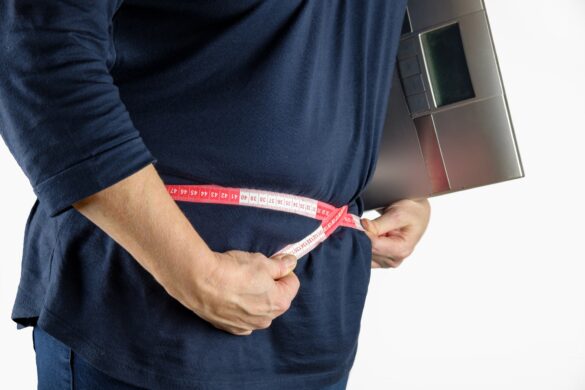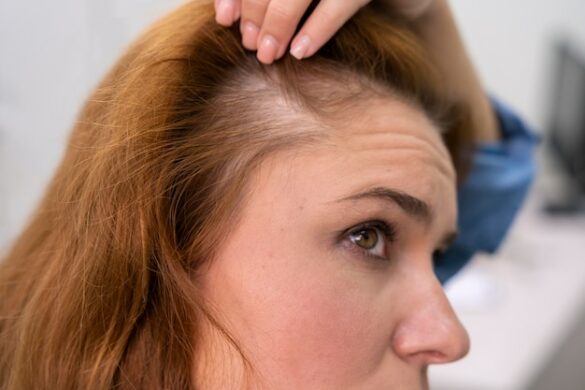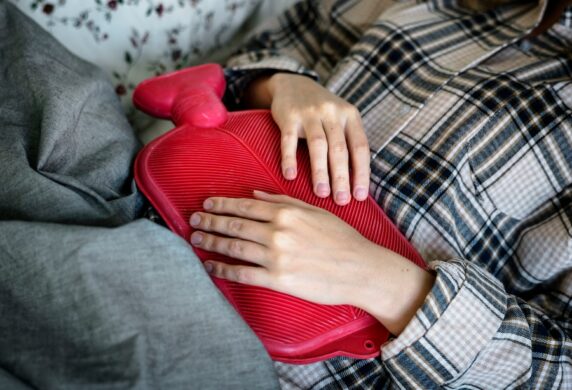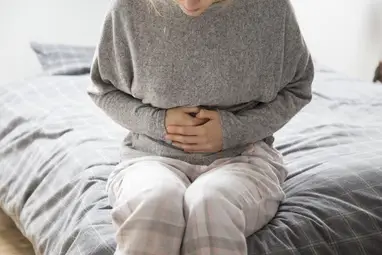PCOD: Causes and Treatment

PCOD: Causes and Treatment
Posted on 30th Sep, 2022
We might have heard our mothers say “We didn’t even have something called PCOD during our times” very often whenever this topic arises. Well, mothers are right, PCOD has become a part of our sedentary lifestyle such that, about one-third of the women in their reproductive age are affected by it around the world. It is an alarming condition in women as it can lead to infertility if not identified and treated time sensitively. Before we head to the treatment, do you know what PCOD is? Are you aware of its signs & symptoms and possible causes? If not, let us discuss this in detail and learn how we can manage it.
What is PCOD?
Polycystic Ovarian Disease or as said PCOD is a medical condition that affects female reproductive health. A healthy ovary releases one fully mature egg every month whereas a female suffering from PCOD, release many immature and premature eggs that change into fluid filled sacs on ovaries known as cysts. This makes ovaries to become enlarged and in turn releases large amount of male hormones and is known as hormonal imbalance. Hormonal imbalance further gives rise to symptoms like irregular periods, facial hair, acne, hair thinning, weight gain, difficulty in conceiving, etc. As you have now understood what happens to your ovaries when hormonal imbalance takes place, let us move ahead and read about some of the most common symptoms reported in PCOD.
Common Symptoms
1. Irregular periods

Cramps, mood swings, bloating, low energy, bleeding for three to five days, women go through this every month but when you have less than 10 periods in a year or if your periods extend beyond five to seven days in a month, it can be considered as irregular periods. And it is one of the most significant signs of PCOD or hormonal imbalance.
2.Weight gain

Not able to fit into your favorite clothes which were fitting you fine months ago? Unintentional rapid weight gain is one of the most observed symptoms in PCOD. High levels of androgens leads to insulin resistance which in turn leads to sudden weight gain.
3.Facial Hair (Hirsutism)

Most women love their hair to be thick, dark and long. But sadly, excess hair growth on their face, neck and chest known as hirusitism can be a sign of PCOD due to excess secretion of male sex hormones.
4.Acne

A condition which no one prefers to have is acne, unfortunately flaring up of pimples on your cheeks, jawline, chin and upper neck also known as hormonal acne is a classical symptom of PCOD.
5.Hair loss and Hair Thinning

Losing massive amounts of hair strands every time you comb or brush your hair is alarming enough to tell that something is not right in your body. It might be a sign of low hemoglobin or hormonal imbalance. Hair follicles can shrink and cause hair fall when there is excess amount of androgen secreted including dihydrotestosterone.
6.Mood swings

You might be on cloud nine one minute, a sobbing mess the next, and then raging like a volcano the next. Hormonal imbalance is the reason to your mood swings which are experienced by women having PCOD.
7.Painful periods

Throbbing pain in your lower abdomen in addition to pain in lower back and thighs is something none of you would want to experience, worse luck women with PCOD have to experience these pain on an intense level before, during and after period.
8.Premenstrual Syndrome

Is it that time of the month? I bet you menstruating women might have heard this question at least once in your lifetime and thanks to your periods and premenstrual syndrome because going through emotional and behavioural symptoms like mood swings and irritability or anger, crying spells, tension, social withdrawal and physical symptoms like muscle pain, headache, fatigue, bloating, breast tenderness, acne flare ups, constipation or diarrhoea can be tiring.
You might be wondering if women actually go through all of these symptoms discussed. The answer is yes they do. Let us further know about what causes PCOD.
Causes
1.Unhealthy diet

Saying no to double cheese pizza with your favourite topping, creamy doughnuts, cookies sprinkled with extra sugar, potato chips, cupcake with your favourite frosting, burgers, candies, desserts can be difficult but these foods tend to give you extra calories as they are highly processed, refined and high in glycemic index which leads to hyperinsulinemia (excess production of insulin) resulting in weight gain, which is major cause for PCOD along with other metabolic syndromes.
2. Lack of Physical Activity

Not moving your body enough can make you prone to weight gain, chronic health problems like diabetes including PCOD. So, move fast and frequent to lose those extra weight and shed the risk of PCOD.
3.Stress

Your body produces more cortisol when you’re under stress, which encourages the accumulation of belly fat that further disturbs your ovulation process resulting in irregular periods.
4.Hormonal Imbalance
When your body produces too much testosterone, it decreases the follicle stimulating hormone and luteinizing hormone which results in improper growth of eggs and releases immature eggs. At times your body produces excessive insulin and your body becomes insulin resistant which increases risk of developing type 2 diabetes.
Now that we understand that poor eating choices, sedentary lifestyle are some of the major causes of PCOD, let us now move ahead and learn the ways to manage PCOD.
Treatment for PCOD
1.Healthy Diet

You might be familiar with the term ‘eat rainbow’ which means you need to include fruits and vegetables everyday in your diet. Add your favourite protein, be it animal or plant based with complex carbohydrates like wholegrains. Limit or remove as much as refined carbohydrates, refined sugar, processed foods, processed meat from your diet.
2.Regular exercise

WHO (World Health Organisation) recommends at least an hour of vigorous intensity aerobic physical activity or two hours of moderate intensity aerobic physical activity or a combination of both throughout the week for adults. You can also try 30 minutes of High intensity interval training (HIIT) 3-4 times in a week which works well for PCOD.
3.Meditation

Meditation is one of the best body-mind exercises which helps to reduce your stress, improve your concentration, relieve your mood swings and improve your sleep. Now you know your quick stop when you’re on the verge of breakdown.
4.Quality Sleep

You know you’ve not had a good amount of sleep when you’re all gloomy the next day. A good amount of 7- 8 hours of sleep is essential for your body to function properly.
5.Healthy Body weight

Your healthy weight is directly proportional to low risk of weight related health problems. Maintaining your healthy weight will help you lower your risk for noncommunicable diseases.
We all know that prevention is better than cure, this can only happen when there is awareness and early detection. The most effective way to relieve the symptoms and manage PCOD is through lifestyle modifications. So, get up and make a change to your sedentary lifestyle get rid of hormonal imbalance and its related issues.

Health articles from our experts

Herbal Remedies and Natural Supplements for Women's Health: Benefits and Precautions

Top 9 Health Benefits Of Shatavari For Female

Home remedies for painful periods

Things to avoid during pregnancy

How to cope with menopausal changes

Easy tips to have pain-free periods

PCOD: Causes and Treatment

